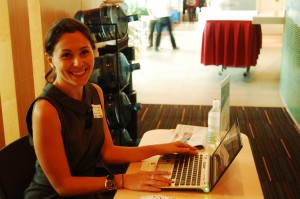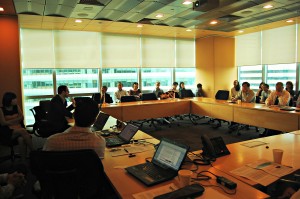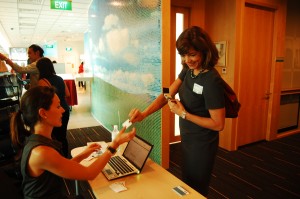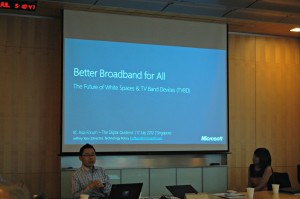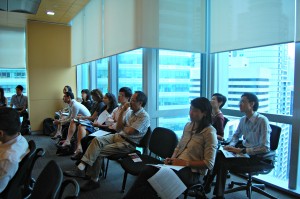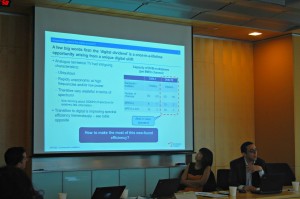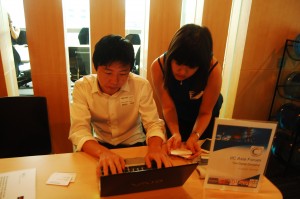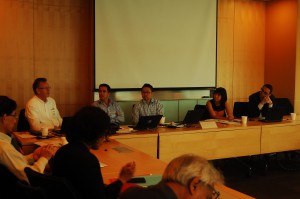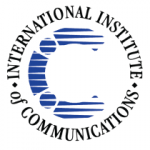

The digital dividend arises from the switch from over-the-air (OTA) analogue to digital terrestrial TV (DTT).
Most of the bandwidth savings arise in the UHF band and in many cases substantially more than 100 MHz will be released. The most likely primary reallocation of this spectrum is for 4G broadband wireless services, but this requires a harmonized approach across economies in the region. How difficult will that be, and when might it take place?
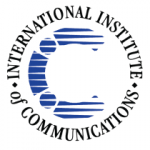

Many countries have legacy problems but the minimum requirement for progress is action to avoid cross-border radio interference and domestic interference with TV broadcasts.
This is one area in which Asia is lagging behind the US and Europe where the switchover has already happened or is well under way. Different DTT standards are being adopted. The US uses ATSC, Europe DVB-T/DVB-T2, Japan ISBD. ASEAN is still looking at 2015~2020 for the ASO (analogue switch-off) and along with the ABU is advocating a common DVB-T2 standard and even an ASEAN STB; but different standards are being adopted in China, Laos, Hong Kong, Macau, Korea and Japan, and possibly the Philippines. How will this affect the development of commercial broadcasting and the future distribution of content in the region?
“White spaces’ are the unused or under-used frequencies mostly in the bands used by TV. TV Band Devices (TVBDs) can be used to check a database or use cognitive radio to identify others users and avoid interference on those channels. Applications range from M2M sensors for telemetry for smart cities to neighbourhood broadband WiFi. The Singapore White Spaces Pilot Group (SWSPG) is preparing for commercial trials.
The digital dividend is potentially the most radical re-use of spectrum for a generation. ASO remains some years off, but commercial developments in white spaces may not take quite so long. The forum will seek answers to these and other issues in its familiar roundtable format. Chatham House rules apply.
Times, Venues and Locations
- IIC Asia Forum in Singapore, 17 Jul 2012 @ Microsoft Office, One Marina Blvd Level 22 [brochure]
IIC Asia Forum in Singapore
17 Jul 2012 @ Microsoft Office, One Marina Blvd Level 22
SPEAKERS
- David Abecassis, Senior Manager, Analysysmason – what is the digital dividend and how will it come about?
- Aileen Chia, Deputy Director-General, IDA – the digital dividend in Singapore and regional harmonization
- Chris Perera, GSMA Senior Director, Spectrum Policy and Regulatory Affairs for the Asia Pacific Region – the case for a 100 MHz harmonized approach to the 4G spectrum allocation
- Jeffrey Yan, Director, Technology Policy, Microsoft – The future for White Spaces and TVBDs (TV Band Devices)
- Ling Pek Ling, Director, Digital Broadcasting Deployment Office, MDA – the DSO (digital switch-on) and the ASO (analogue switch-off) in Singapore
Please register at [email protected]/old_archive with your name, designation, company name, and number of guests.
EVENT SUMMARY
Singapore 17th July 2012
Over 50 participants attended the forum on The Digital Dividend at the Microsoft office. Each participant had been sent a copy of the Background Briefing paper prepared by TRPC which makes the point that Asia is unusually lagging behind Europe and North America in terms of DSO (digital switch-on) and ASO (analogue switch-off) but the potential for spectrum reallocation (the digital dividend) was the greatest for a generation. (See https://trpc.accesspartnership.com/old_archive/the-digital-dividend/ for all the presentations.)
Speakers:
- David Abecassis, Senior Manager, Analysys Mason – provided an overview of the digital dividend, including technologies such as DVB-T2 and the channel efficiency gains of DTT over analogue TV. He also reviewed the percentage of populations across Asia relying upon terrestrial FTA TV, a major social and political factor influencing the pace of the transition to DTT and the date of ASO.
- Aileen Chia, Deputy Director-General, IDA – provided an account of the approach of Singapore to the transition with a stress on the need to reach regional harmonization, both to prevent cross-border radio interference and to ensure the gains of economies of scale for UHF applications, such as 4G mobile and white space devices. She confirmed IDA approval of white space device commercial trials.
- Chris Perera, GSMA Senior Director, Spectrum Policy and Regulatory Affairs for the Asia Pacific Region – presented findings from BCG showing the economic gains from switching to DTT at the earliest opportunity and how these gains would be maximized by allocating 100 MHz of spectrum to 4G on a harmonized basis. GSMA supports the APT’s proposal along these lines.
- Jeffrey Yan, Director, Technology Policy, Microsoft – argued that while DSO and ASO may not be completed across Asia until 2020 the gains from the use of white space TV devices could start much earlier. He predicted that scale economies would bring mass production of such devices by 2014 offering opportunities for Super WiFi and M2M applications. Among other uses of Super Wifi would be traffic handoff opportunities for mobile operators and return-paths for DTT operators to support interactive media content and apps.
- Ling Pek Ling, Director, Digital Broadcasting Deployment Office, MDA – confirmed the DSO would begin next year but also warned that in addition to the 3% of households in Singapore that relied exclusively on FTA broadcasts there were many more using analogue TV sets as 2nd TV sets. She also warned that the public may have difficulty understanding the issues which could slow down the switchover and delay ASO.
Downloads
- Briefing Paper on the Digital Dividend 2012-07-17_IICAsiaForum_DigitalDividend_BriefingPaper
